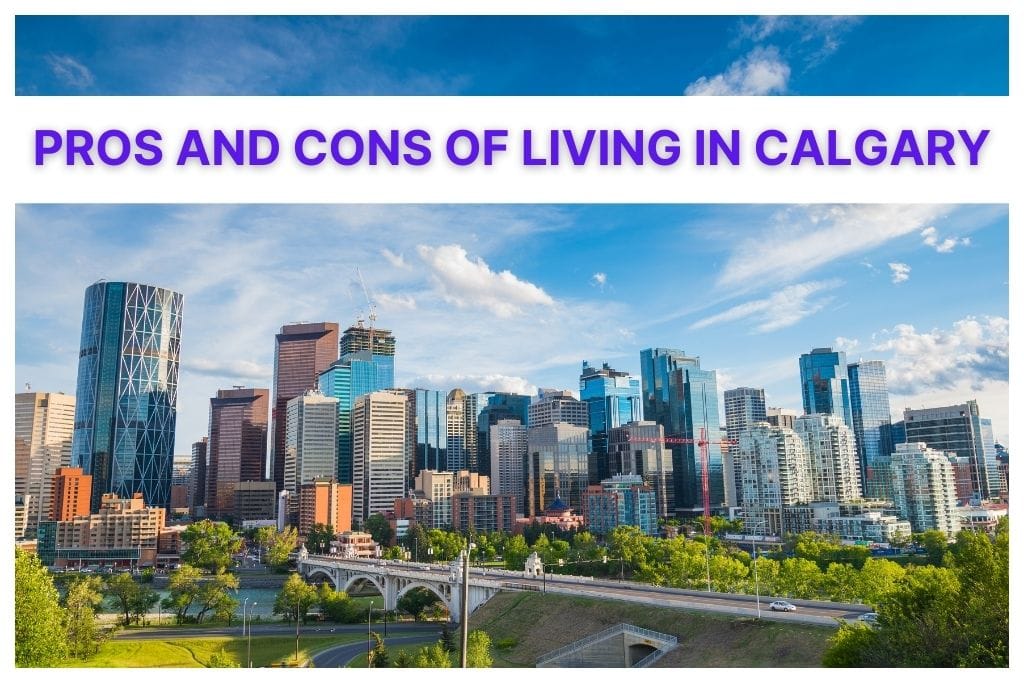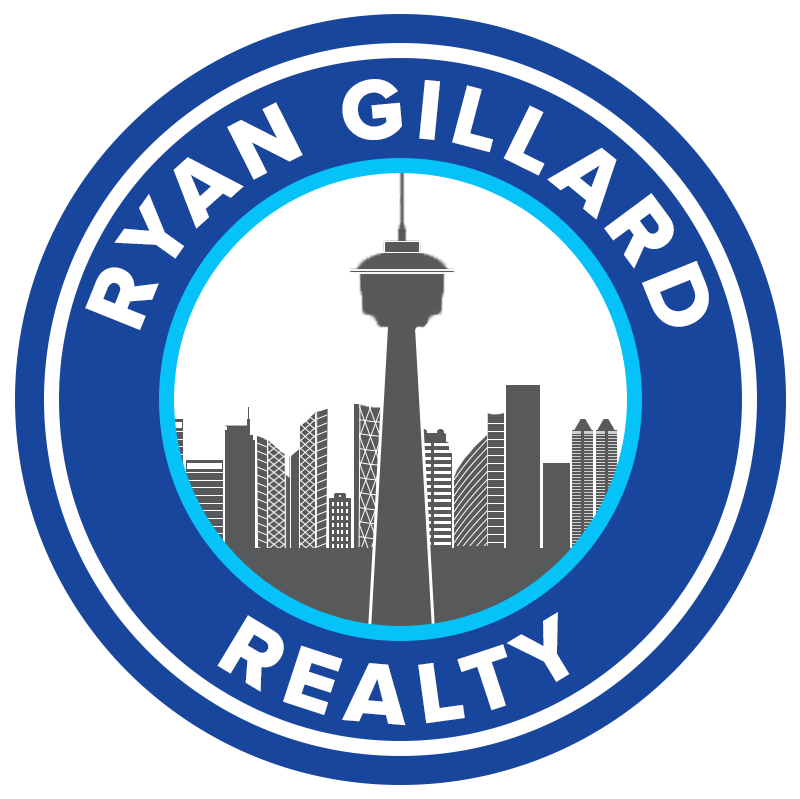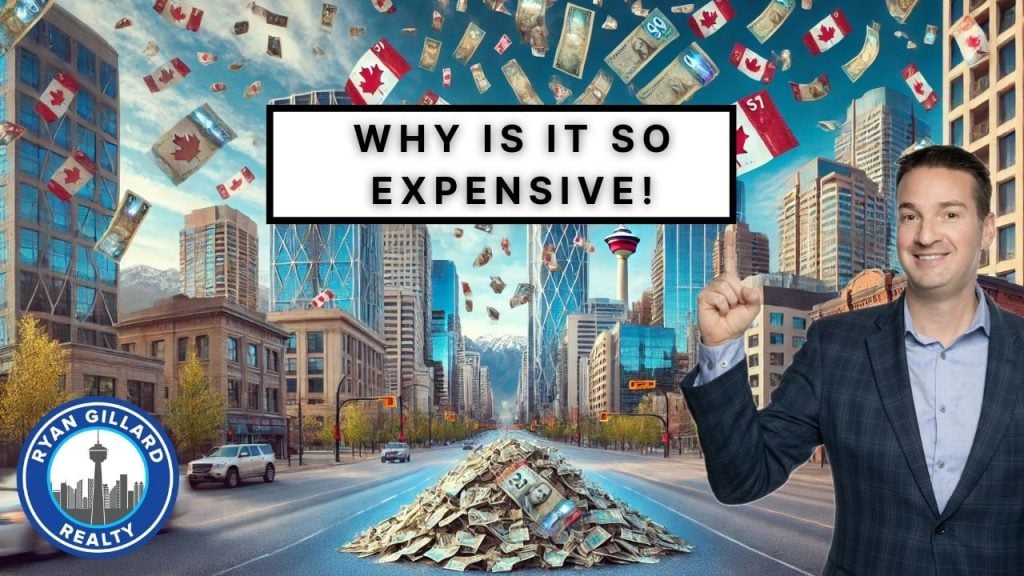
Calgary is often ranked as one of the best cities in the world to live in, and it is easy to see why. With a strong economy, mountain views, and family friendly neighbourhoods, the city offers a rare mix of opportunity and lifestyle.
In this guide, I will break down what it is really like to live here, covering the pros, the challenges, and the details you will want to know before making a move. Whether you are buying your first home, relocating with a family, or curious about Calgary’s lifestyle, this article will give you a clear picture.
GENERAL QUALITY OF LIFE
Calgary is consistently ranked among the most liveable cities in the world, combining affordability, safety, and access to nature in a way few cities can match. Here are some of the key factors that shape quality of life here:

- Livability: High standards of infrastructure, healthcare, and education place Calgary near the top of global rankings. Compared to Vancouver or Toronto, the cost of living is far more manageable which makes homeownership more realistic for many families.
- Proximity to Nature: Calgary sits at the meeting point of prairies, foothills, and the Rockies. Residents can enjoy year round hiking, skiing, and outdoor recreation within an hour’s drive.
- Global Location: Being somewhat isolated has its advantages and drawbacks. On the positive side Calgary feels far removed from many of the world’s conflicts. The challenge is that international travel often requires long flights or connections.
- Safety: Calgary maintains one of the lowest crime rates among Canada’s largest cities. Families often highlight the sense of security and the abundance of safe neighbourhoods as a deciding factor for moving here.
- Political and Economic Stability: Alberta’s stable government policies support entrepreneurship and keep taxes relatively low. This creates a business friendly environment that continues to attract new investment and job growth.
COMMUNITY & CULTURE In Calgary?
Calgary is often praised for its welcoming spirit and community feel. The city blends Western heritage with cultural diversity, creating a place where families, newcomers, and professionals can feel at home. Here are some of the standout cultural features:

- Mindset: Alberta has a reputation for independence, innovation, and a youthful energy. Many newcomers are drawn to Calgary’s entrepreneurial spirit and forward looking approach.
- Friendliness: Calgarians are considered some of the friendliest Canadians, with a strong sense of community and hospitality. It may not feel quite as small town as the Maritimes, but the warmth is still noticeable.
- Cultural Diversity: Calgary has become one of the most multicultural cities in Canada. Residents enjoy food from around the world, international festivals, and a variety of cultural events. For some long time locals the pace of change can feel fast, but for many it adds vibrancy and opportunity.
- Nightlife: The nightlife scene continues to grow with new bars, restaurants, and live music venues. While it may not rival Toronto or Vancouver for scale, it has improved noticeably in recent years.
- Downtown: The core is lively during weekdays with business and retail activity, though it can quiet down after hours as many people commute to the suburbs. Revitalization projects and new residential developments are helping bring more energy to the area.
- Attractions: Calgary is best known for outdoor recreation and the world famous Stampede. While the city lacks large theme parks or major museums compared to some global cities, it offers plenty of events, festivals, and nearby natural attractions that fill the gap.
Outdoor Lifestyle In Calgary
One of the biggest advantages of living in Calgary is the access to the outdoors. The city blends urban convenience with natural beauty, giving residents plenty of ways to stay active and enjoy the environment year round.

- Rocky Mountain Access: Within an hour’s drive you can reach world class skiing, hiking, and camping in the Rockies. Weekends in Banff, Canmore, and Kananaskis are part of everyday life for many Calgarians.
- Green Space and Pathways: Calgary’s parks and pathways cover hundreds of kilometres, including routes along the Bow and Elbow Rivers. Dog parks, school fields, and lakes make it easy for families and fitness enthusiasts to enjoy the outdoors without leaving the city.
- Scenic Setting: The city sits at a unique crossroads of prairies, foothills, and mountains, offering breathtaking views in every direction.
- Clean and Healthy Environment: Calgary is recognized as one of the cleanest cities in the world, with low pollution levels and fresh mountain air.
- Sunshine: With over 330 days of sun per year, Calgary is one of the sunniest major cities in Canada. This bright climate adds to the quality of life and supports year round recreation.
Job Opportunities and the Economy
Calgary’s economy has long been known for its strength in energy, but in recent years it has expanded into new industries that create more balance. Residents benefit from high paying careers, a growing tech presence, and a relatively low unemployment rate. The city does still experience ups and downs tied to oil and gas prices, which is important to consider if you are moving here for work.

- Energy Hub: Calgary is the centre of Canada’s oil and gas sector, supporting thousands of jobs and driving major investment.
- Corporate Presence: The city has the second most head offices in Canada after Toronto, which provides opportunities for high level corporate careers.
- Growing Tech Scene: A fast developing tech industry is bringing diversity to the job market, attracting new talent, and creating opportunities outside of energy.
- Boom and Bust Cycles: Reliance on energy can lead to economic swings when global prices change, creating uncertainty in some sectors.
- Wealth and Stability: Calgary ranks high in GDP per capita, which contributes to an overall prosperous and opportunity rich environment.
The Cost of Living in Calgary in 2026
Calgary remains one of the most affordable major cities in Canada when compared to Vancouver or Toronto. The absence of a provincial sales tax and lower housing costs keep many everyday expenses manageable, though some costs like insurance and utilities are on the higher side. You can read a full cost of living breakdown here.
- Housing: Still far more affordable than Vancouver or Toronto, although prices have risen in recent years as demand has increased.
- Land Transfer Tax: Alberta does not charge this fee, saving homebuyers thousands compared to other provinces.
- Sales Tax: No provincial sales tax makes everyday shopping and services among the cheapest in Canada.
- Utilities and Insurance: These are higher than average in Alberta and can surprise newcomers when budgeting.
Or you could watch my Cost Of Living In Calgary YouTube video.
REAL ESTATE AND HOUSING IN CALGARY
Calgary’s housing market offers variety for every budget, from entry level condos to high end luxury estates. While the city is still more affordable than Vancouver or Toronto, prices have risen in recent years and competition can be intense in popular neighbourhoods. Buyers should expect steady demand supported by population growth and a strong job market.

- Affordability: Calgary remains more affordable than other large Canadian cities, though rising prices are starting to narrow the gap.
- Wide Range of Options: From starter homes to luxury estates, the market offers properties suited to first time buyers, families, and investors.
- Stable Demand: A growing population and solid employment base support consistent home values over time.
- Rental Market: Low vacancy rates make rentals competitive, which can drive prices higher.
- Market Sensitivity: The local market can still be influenced by swings in the energy sector, affecting both confidence and pricing.
TRANSPORTATION, COMMUTING, AND GETTING AROUND CALGARY
Calgary makes commuting relatively straightforward thanks to its extensive road system and a reliable CTrain network that supports both public transit and active commuting. Many residents enjoy biking or walking for short trips, while the train offers a practical option for daily travel. That said, Calgary is still largely a car-focused city, and rush hour traffic can be frustrating as the population continues to grow.

Calgary traffic is lighter than most major Canadian cities, making it one of the easier large cities to drive in.
Winters can be tough on vehicles, with chipped windshields and slippery roads common.
Due to urban sprawl, most residents rely on a car for daily life.
Calgary International Airport offers numerous direct flights within Canada and abroad, though the CTrain does not yet connect to the airport.
The CTrain covers much of the city, but gaps remain in some communities. The upcoming Green Line will expand service to the southeast and north central areas.
Ongoing construction and city growth often cause traffic delays.
Climate in Calgary
What’s the climate like in Calgary? Living here means adjusting to sunshine, snow, and sudden weather swings. Calgary is one of the sunniest cities in Canada with more than 2,300 hours of sunshine each year, but it also brings cold winters and unpredictable changes that can surprise newcomers. Chinook winds often break up the winter chill, turning frigid days mild in just a few hours.

- Snowstorms can arrive in spring and autumn, often catching people off guard.
- Winter temperatures can dip into the -40s during extreme cold snaps.
- The dry climate can be tough on skin and requires extra care in winter.
- Summer hail and thunderstorms are common and sometimes cause costly damage.
- Chinooks bring dramatic warm ups during winter that locals rely on.
- Calgary’s elevation keeps evenings cooler, even in summer.
- Spring and autumn are short, while winters feel long compared to many Canadian cities.
- In recent years, forest fire smoke has reduced air quality during the summer.
- Southern Alberta has fewer lakes than other provinces, which limits nearby waterfront escapes.
Education
Calgary’s education system gives families a wide range of choices. From public and Catholic schools to private academies, there are programs designed to fit different needs and learning styles. Families also have access to French immersion and International Baccalaureate options that add strong academic pathways.
- Many Calgary schools are highly ranked and offer strong academics along with extracurricular activities.
- Public and Catholic schools are government funded, keeping education widely accessible.
- Post secondary options include the University of Calgary, Mount Royal University, and SAIT, all of which draw students from across Alberta and beyond.
- Population growth has led to overcrowding in some schools, and in newer neighbourhoods, students may need to travel to nearby communities.
- Private schools provide specialized programs but tuition can be expensive and out of reach for many families.
Want a deeper look?
If you’d like to see real examples and hear my personal take, I also created a YouTube video breaking down the pros and cons of living in Calgary in detail. You can watch it here:
Final Thoughts on Living in Calgary
Living in Calgary is all about balance, big city opportunities paired with the beauty of the Rocky Mountains right on your doorstep. The city is sunny, welcoming, and more affordable than Toronto or Vancouver, making it a strong choice for many families and professionals.
Of course, it’s not without its challenges. The weather can be unpredictable, driving is often essential, and the economy has its ups and downs. Still, for many people, Calgary strikes that perfect mix of career opportunities, outdoor adventure, and a high quality of life.
How To Get Help Or More Information
- 📞 Call/Text: (403) 471-4212
- 📧 Email: ryan@ryangillard.ca
- 📈 Request a Home Evaluation
- 🗂 Buyer’s Guide
- 🗂 Seller’s Guide
- 🗂 Relocation Guide
- 🏡 View Homes in Calgary
- 💰 Compare Calgary Mortgage Rates


